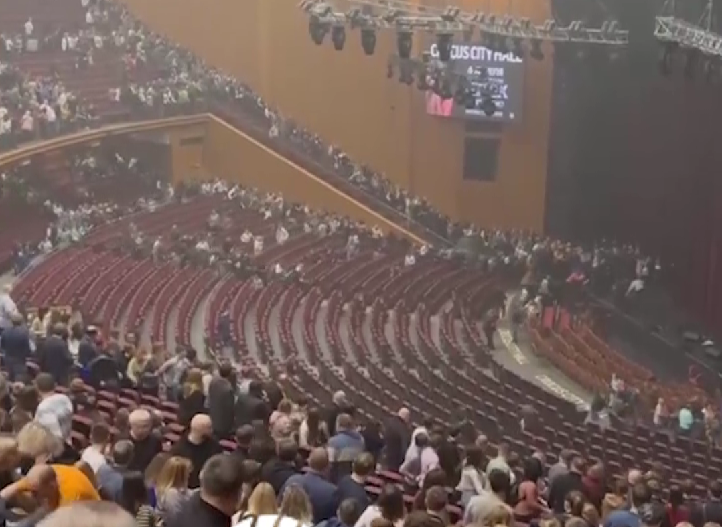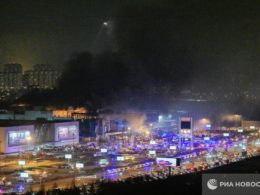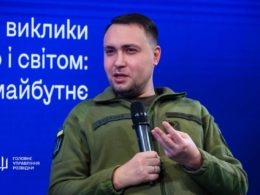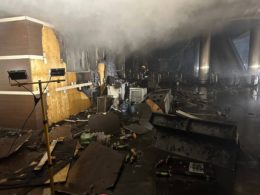The Institute for the Study of War (ISW) reported on 23 March that “the Islamic State (IS) is very likely responsible for the Crocus City Hall attack.”
On the evening of 22 March, the shooting attack occurred as crowds gathered at the Crocus City Hall concert center on the outskirts of Moscow. Several people in camouflage opened fire on the crowd with automatic weapons and threw Molotov cocktails, starting a fire. The attack reportedly killed 133 and injured 152.
IS Amaq’s News Agency claimed responsibility for the attack, stating that “IS fighters attacked a ‘large gathering of Christians’ on the outskirts of Moscow, ‘killing and wounding hundreds and causing great destruction…before they [the attackers] withdrew to their bases safely.'” The United States has confirmed the responsibility of the branch of the Islamic State for the attack.
According to ISW, “The Amaq News Agency announcement is consistent in terms of style, branding, and language with previous Amaq claims for other attacks.” The report states, “IS media organs make deceptive or false claims only ‘infrequently’ and carefully and try to maintain ‘high credibility’ in their communique to define clear ideological objectives and maintain fundraising streams.”
ISW said that “IS propaganda enables the group to fundraise and disseminate its guidance to lower-level commanders and supporters–IS risks discrediting itself within the competitive Salafi-jihadi community by falsely taking credit for very high-profile attacks.”
“The conduct of the attack itself is also consistent with previous IS attacks, including the 2015 Paris terror attacks,” ISW reported.
ISW considers the possibility that “The Islamic State’s Afghan branch IS-Khorasan (IS-K) may have conducted the Crocus City Hall attack.” The report cites US Central Command Commanding General Michael Kurilla stating in March 2023 that “IS-K would be able to conduct ‘external operations against US or Western interests abroad in under six months,'” suggesting Western intelligence had assessed IS and IS-K’s capabilities for such attacks by September 2023.
The report dismisses allegations of a false flag operation, stating, “Allegations that the Crocus City Hall attack was a false flag operation are inconsistent with the evidence ISW has observed from the attack itself correlated with other reports of previous IS external attacks that ISW has covered since the emergence of the Islamic State, as well as the IS claim pattern following the attack.”
Other takeaways from the ISW report:
- The Kremlin, nevertheless and without evidence, quickly attempted to tie Ukrainian actors to the Crocus City Hall attack but has yet to formally accuse Ukraine of involvement in the attack.
- Russian ultranationalists responded to the attack by reiterating typically xenophobic calls for anti-migrant policies, reflecting the growing tension in Russian society over the mistreatment of migrants and the impacts migrant disenfranchisement could have on expanding a viable recruitment base in Russia for Salafi-Jihadi groups.
- Russian sources accused Ukrainian actors of reportedly conducting a successful drone strike against a Russian oil refinery in Samara Oblast on the night of 22-23 March.
- Russia is reportedly delaying the delivery of two S-400 air defense systems to India, likely due to limitations in Russia’s production of S-400 systems, an increased need for air defense systems to protect cities and strategic enterprises in Russia from Ukrainian drone strikes, and a reported souring of Russian relations with India.
- Russian forces made confirmed advances near Avdiivka and Donetsk City and western Zaporizhzhia Oblast.
- Russian President Vladimir Putin signed a law on 23 March that will release individuals from criminal liability if they are called up for mobilization or sign military service contracts.







